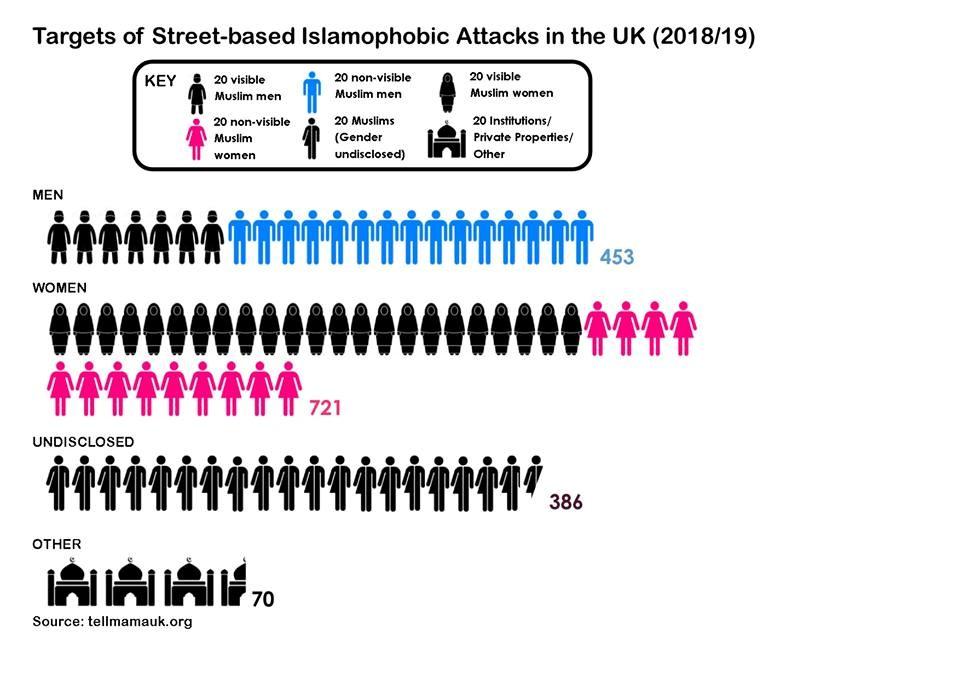An exodus of British Muslims is happening right under our noses – and still we’re asking whether Islamophobia exists
As normalised hate trickles from the top down in society, adults and children born and raised here have been left feeling like there’s no choice but to leave

British Muslims – many who have lived here for generations – are packing up their belongings, parting ways with their loved ones, established careers and the country they were born in to move to somewhere safer. In recent years, the rates of hate crimes against religious minorities in the UK has rocketed, and for some, it has just become too dangerous to stay. There is an exodus happening in Britain, and no one has even blinked an eye.
Contrary to the mainstream narrative that veiled and bearded people are flooding through our borders, a significant number of Muslims are leaving their homeland because of rising rates of targeted religious hate crimes. Despite this reality, harmful discourse in the media, politics and places of power continues to contribute to an increasingly hostile environment that is driving British Muslims away.
Sama Khan, who requested for her real name to be protected, is moving to Pakistan with her three children, her husband and her mother in the summer. She was born in the affluent London borough of Kensington and Chelsea, and her parents came to the UK during Partition. Sama told me: “I wouldn’t want to leave. This is where I’ve been born and bred. My family’s here … everyone’s here. But I have to think about the future and my kids. If we stay, they’ll face discrimination – and their kids and their kids after them. I don’t want them to feel like second-class citizens. I don’t want them to be miserable.”
Sama’s first experience with Islamophobia came after a lifestyle change in her late-20s when she decided to wear a headscarf day-to-day. In 2018, 720 Muslim women experienced street-based attacks, 480 of them were visible targets like Sama. After putting on the hijab, she said her work colleagues treated her differently. “I was repeatedly intimidated on the road by racist drivers. Now it’s so much worse since Brexit and Boris [Johnson], I know someone whose jaw was broken for being Asian and having a beard.”
Within the British Islamic community, the belief that the EU referendum and the appointment of Boris Johnson as prime minister are to blame for a rise in Islamophobic attacks is widespread. According to TellMama’s latest report, this is not a total misconception. There was a 475 per cent increase in attacks against Muslims following the referendum result, and after Boris Johnson’s comment calling veiled Muslim women “letterboxes” in 2018, anti-Muslim attacks increased by 375 per cent the next week. While Johnson has apologised for “hurt and offence” caused by the Conservative party, who have been accused of Islamophobia more than once, this issue is greater than the individual assailants of hate crimes. Attackers are emboldened by the people in power who continue to fuel their hate with thoughtless and provocative words.

Last week, Michael O’Leary, the CEO of Ryan Air openly linked all men of “Muslim persuasion” to bombers, conflating religious extremists, who form less than 1 per cent of the international Muslim community, with non-threatening, normal travellers. It is this sort of discourse that causes anxiety among Muslim fliers and promotes divisive and dangerous hysteria in Britain. Unfortunately, this country has a reputation for giving a platform to those (Katie Hopkins, Tommy Robinson, and, most recently, Andrew Sabisky) who offer a voice for the alt-right.
While the definition of Islamophobia is still heavily debated in the political landscape – the Police Chief Council controversially suggested that too broad a term could undermine counterterrorism efforts, the Conservative governments rejected the most recent proposed definition, and both were met with mass criticism from protestors – there is still a need to define the motivation driving the 3,500 police-recorded crimes (and the hundreds unreported) that only target this religious group.
Journalist and podcaster Diyora Shadijanova explained to me how her British-Uzbek family have not ruled out moving away from the UK. “If things get more hostile we would consider moving away somewhere safer. I have no idea how far people can take their hate. That’s what scares me. We’re British Muslims, we belong here. This is our home”. The government’s failure to spend the entirety of the £1.6m allocated to protect mosques across the UK, which is in itself a small amount of money given the scale of the issue, is one of many reasons that Muslims are not able to feel safe in this country.
I do not have the words to respond to Sama’s 10-years-old daughter, who told me she didn’t “want to leave Nana’s grave” before saying: “But I don’t think British people want us here.” I can’t explain why young girls like Mariam Moustafa were beaten to death in public, why so many Muslim creatives feel they can only share their fears on social media, why my own grandmother almost got her house burnt down in Kent, or why there is so little coverage of all of this.
Until we address systematic discrimination in the UK, which trickles from the top downwards, and is reproduced through mainstream media outlets, we risk losing the Muslim journalists, doctors, business people, humanitarians, restaurateurs, academics, carers, partners and friends who have helped build the diverse nation that we are so proud of, since the 19th century. In their place, we will allow the radical alt-right to flourish instead.
Bookmark popover
Removed from bookmarks